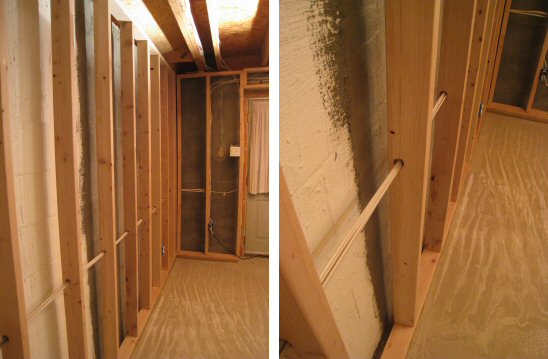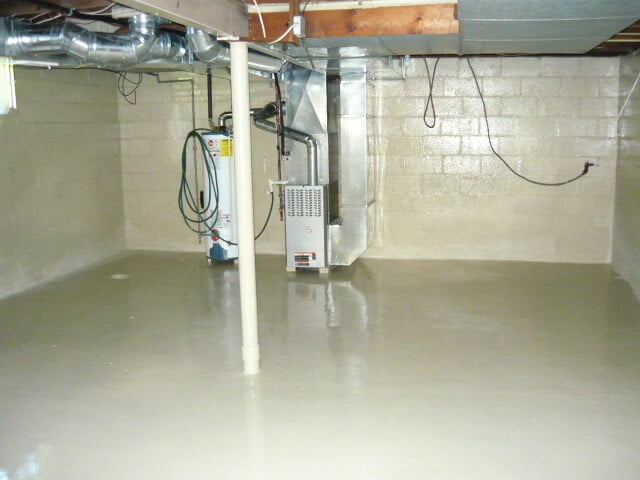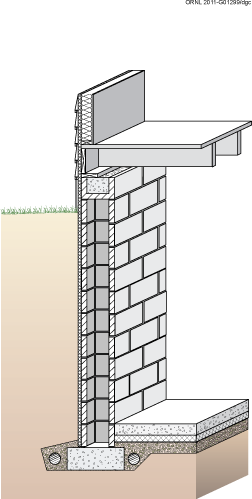How To Use Hydrostatic Sheets On A Basement Wall

Water seepage through concrete basement walls is a common enough problem and a serious enough one to have created a healthy market for waterproofing paints.
How to use hydrostatic sheets on a basement wall. The foundation wall of a building may be a cast in place concrete retaining or basement wall or a structural wall complete with load bearing pilasters. I am confused as to how the dimple board relieves hydrostatic pressure on the basement wall. Tape a one foot by one foot square of plastic sheeting plastic kitchen wrap will do to the concrete wall in your basement with duct tape and leave it in place for 24 hours. If so how does the water find its way from the ground through the dimple board to the other side where it can freely drain down to the foundation drain.
Materials used may be concrete or reinforced masonry. Hydrostatic pressure loads may exist in cases of high water tables or flood events. In regards to basement foundation problems hydrostatic pressure can be best described as the constant force of water pressure being excreted on the basement walls. Foundation walls frequently water will seep over the top of the walls of the foundation.
Typical hydrostatic and soil pressures generally. The standard tools used to relieve hydrostatic pressure are some sort of drainage board or sheet drain to allow water to quickly make its way to the footing a footing tile usually clay or perforated plastic pipe that collects that water and channels it to a sump pit and a sump pump that will discharge that water well away from the structure. As a general rule hydrostatic pressure increases as subsurface depth decreases due to the increasing weight of earth and gravity generating downward force from above. Floor cracks water can seep into a basement thru cracks that develop on the floor.
This will allow the water to drain now you need to install a baseboard system that will collect the water and drain it to your sump pump. Isn t it a waterproof solid sheet of plastic. Cove joint this is where the walls meet the floor and when hydrostatic pressure increases water can seep into your basement. These products may be oil or water based and they are heavier than conventional paints because they contain additives that promise to create an impermeable water barrier.














































